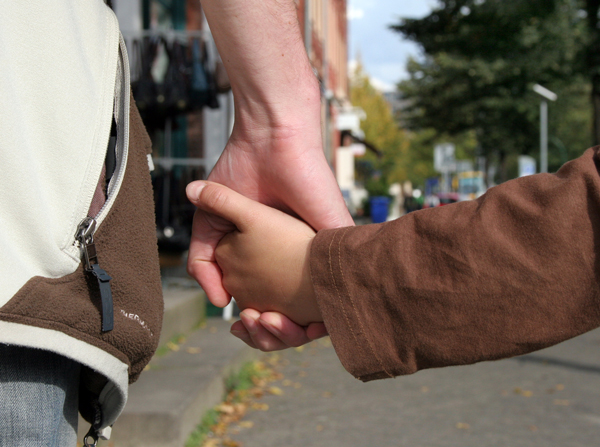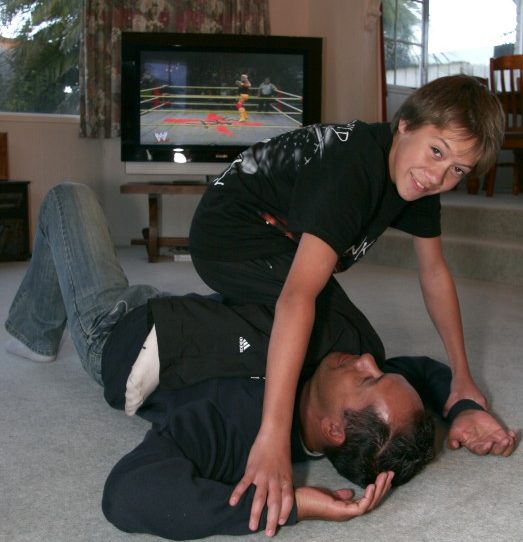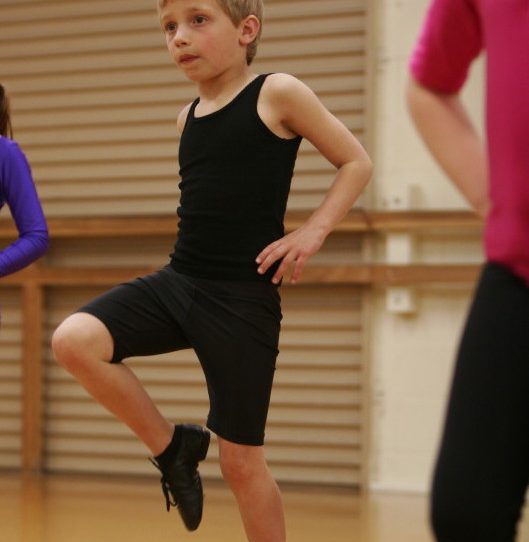Dad’s Corner: Couch Patriotism

Germans are known as being super correct: always punctual, always tidy and ultra organized. I myself am like that. Thus, instead of lazing about in bed on a Sunday morning, I get up at 7:00, just like every other morning, make coffee and…..watch sports on TV. At least you have the feeling that you’re doing something. Okay, just kidding, I don’t do this every Sunday, but last weekend, I found myself in front of the television watching a Formula 1 race live from China. I don’t know what made my son come into the living room at this early hour, but, still in his pajamas, he trotted in and got comfy next to me on the couch.
“What’s the score?“ he asked sleepily. “Look again,“ I answered, “this is car racing, not soccer.” “Uh, okay. Who’s leading?” “Alonso.” My son pushed himself up. “I don’t like Alonso. He’s an opponent.” I asked for whom Alonso was an opponent. “For Michael Schumacher, of course.”
Up to that point, I hadn’t known that my son took any interest in Formula 1. Apparently, the numerous sports magazines that have become a fixture in his room have turned him into quite the expert. At least he knew that Fernando Alonso and Michael Schumacher were rivals. And obviously the magazines created an image of Schumacher the good guy and Alonso the bad guy. I went to get a few of his magazines, and was surprised by the huge amount of Formula 1 articles. I can see it coming: soon, my nine-year-old son will stand in front of me, lecture about the differences between Michelin and Bridgestone tires, and insist on Michael Schumacher becoming world champion, because one of the German tabloids wrote that a German will win.
“Newspapers have to write patriotically,” I said, while it started to rain on the race course in Shanghai and the commentators began to talk shop about who would have the best tires for this kind of weather.
“What does ‘patriotic’ mean?” my son asked. “That is if you are for your country.” “Do you have to be in the army for that?”
Well, sitting on the couch on a Sunday morning and being for Michael Schumacher is probably less of a patriotic act than, say, being a soldier. Still, I tried to explain that sport has a lot to do with patriotism. I said that Spanish newspapers most likely portrayed Michael Schumacher as Alonso’s arch enemy. In Spain, Schumacher would be the bad guy and Alonso the good guy. This was not mean, I explained, but just the way it is all over the world. Every nation worships its own athletes. Why, in Germany, we even like our soccer players now.
I still remember an incident from the Olympic Games in Sydney. On the radio they were live-broadcasting the dressage final. In my car, I turned up the volume and soaked in every syllable the commentator uttered. He mentioned terms I had never heard, terms I never even thought would be part of the official sports vocabulary and which I have forgotten again long ago. But in that moment, those words turned into pictures. In my mind’s eye, I saw a horse stride down the course majestically, and I was so full of patriotic feelings that I thought I could even smell the horse in my car. By the time my drive was over, our dressage riders had won Olympic gold. I pumped my fist and shouted “Yes!”
“Patriotism is when you bet on your own horse,“ I told my son. He didn’t understand. I explained that it isn’t wrong to be for the gymnasts, fencers, rowers or table tennis players of your country, regardless of whether you’re generally interested in the sport. The fact that so many Germans are interested in how the Dallas Mavericks are doing also has to do with patriotism. Since the German Dirk Nowitzki has played for the Mavs, Germans want Dallas to win. The fact that so many people were driving around with German flags attached to their cars during the soccer World Cup; that kids wore black-red-gold socks to school; that many people sang along to the national anthem for the first time and paraded in their cars honking madly—that was patriotism, I said.
“Alright.” My boy finally seemed to be getting it. And while I was briefly indulging in memories of that German midsummer night’s dream, he started complaining: “A shame that we have never been honking.”
Indeed—not once have we jumped into our car after a game to parade through the city honking. But before I had a chance to feel guilty, he already appeased me: “It is not allowed to honk without any reason; this is prohibited by the traffic rules.”
My boy! Super correct—honk only when the law allows you to. Now that is German discipline. That is real patriotism.
- Posted November 9, 2006
© Copyright 2006-2024 by Take The Magic Step®. All Rights Reserved.




